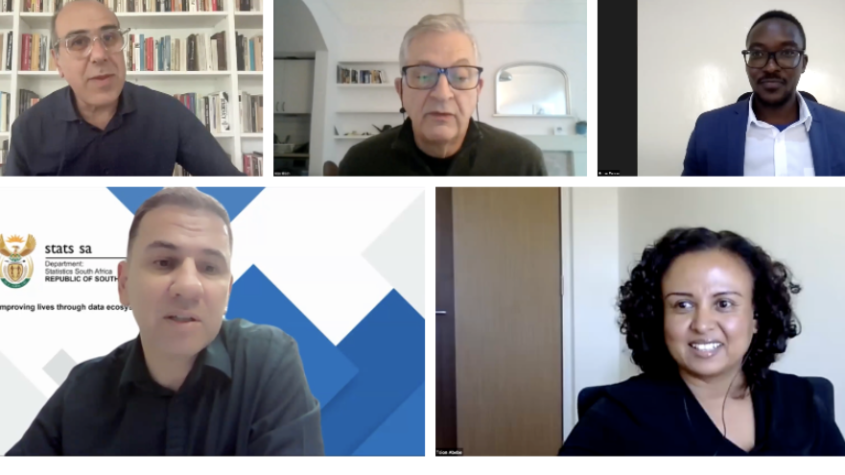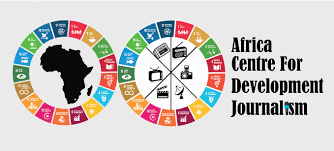MIGRA Findings Reveal New Trends, Dispel Myths about Migration in Africa
Research findings on African migration governance by the New South Institute’s (NSI) Migration Governance Reform Project (MIGRA) reveal new patterns and realities as well as dispelling long-held myths and prejudices about migration in Africa.

The Johannesburg-based New South Institute (NSI) is a think-tank which provides evidence-based policy and applied research on complex problems of governments in delicate democracies, utilizing their expertise in research, policy and advocacy to bring theory and practice together.
To this end, the NSI’s Migration Governance Reform Project (MIGRA) seeks to deepen the understanding of migration trends and prospects in Africa, drawing on the varied and rich experiences of experts and practitioners engaged in research and policy formulation to provide practical insights into migration in Africa. Thus, MIGRA provides workable solutions for improving migration governance and facilitating intra-African migration and settlement across Africa.
Between now and the end of 2024, the project will be publishing a series of case studies for migration governance reform in Africa, with the first two, focusing on Nigeria and South Africa, billed to be out before the end of 2023. MIGRA has already published two preliminary papers to provide a framework and parameters within which the case studies would be authored, namely “Framing a Study of African Migration Governance Reform – Towards Freer Movement” and “An Analysis of Trends and Patterns in Migration in Africa.”
Alan Hirsch, MIGRA’s director, said their research focuses on the complexities and nuances of migration within Africa including identifying promising and viable paths for regular migration on the continent, adding that there was need to reconsider the failure of the African Union Free Movement Protocol (AU-FMP), which was presented to Member States for signature in 2018 but had received a very low level of support and ratification.
Hirsch said although the FMP has not received the desired attention from African countries, unlike in other parts of the world, significant progress has been made by African countries to foster free movement among themselves, at bilateral levels, with Kenya and Rwanda being the latest to grant visa-free travel to all African citizens.
“As migration and development go hand in hand, we need to find ways to negotiate the obstacles to free movement, ways over and around those obstacles. Migration supports trade, investment, tourism, and the exchange of services. In Africa, cultural exchange and understanding are very important between the 55 countries. So, the ability to move from one country to another and accumulate experience is extremely valuable,” said Hirsch at a recent NSI virtual seminar.
Mr Michael Mutava, an NSI research fellow cum author of “An Analysis of Trends and Patterns in Migration in Africa,” said the paper was meant to counter the lots of misinformation about migration on the continent, which, he said, was erroneously being viewed as a “sort of pandemic.” Mutava said to find the accurate role of migration in Africa and dispel the myths and false narratives about migration they had to carry out deep analyses of the continent’s migration data.
In this respect, Mutava said they compared the level of migration in Africa with other regions of the world, which proves there was even less migration within Africa than in other regions. He said Africa’s migration density for 2020 was 1.89%, with 52% of the continent’s 40 million emigrants in 2020 having migrated to fellow African countries, while only 48% migrated to countries outside of Africa. Similarly, he said only 2.3 million migrants left Africa illegally through the Mediterranean in the last 8 years, just as 40 million others migrated through legal routes.
“Contrary to popular belief, African countries with high net extra-continental emigrants are also countries with comparatively higher GDP per capita from North Africa, which is home to countries like Egypt, Libya, Algeria, among others. And the top destinations for intra-continental migrants are countries like Cote D’Ivoire, South Africa, Uganda and then others. As such, if you go to airports in Africa, you will realize that 82% of people are arriving from African countries.”
Mutava said most migrants from all regions of Africa migrate to other regions within Africa and vice versa, except for North Africa, whose migrants mostly move to countries outside of Africa, just as they receive most of their migrants from Sub-Saharan Africa. “With higher levels of income, the tendency for migration increases hence, Kenya, Nigeria and South Africa tend to send more migrants out of Africa. The fourth country; Mozambique, which is not a rich country, tends to send most of its migrants to and from Africa.”
A discussant at the NSI webinar, Ms Tsion Tadesse Abebe, a senior policy and research officer at the International Organisation for Migration (IOM), said the recent bilateral visa waiver regimes in East and Horn of Africa regions, such as the one between Kenya, Djibouti and Eritrea were important steps towards addressing the obstacles to FMP, as they will reveal the benefits associated with free movement of people and encourage Member States to expand their free movement regimes to other countries.
“Subregional free movement regimes are important in facilitating mobility; the experiences of ECOWAS and EAC are classic examples. The [Mutava’s] paper indicates that 93% of the 1.3 million Nigerians who migrated in 2020 did so to countries within the ECOWAS region; the EAC region is also witnessing a boost in movement of people courtesy of their Common Market Protocol. Hence, regionalization is identified as the most salient pattern in African migration. This confirms RECs can play a critical role in enhancing Africa’s free movement agenda.”
Ms Abebe decried the fact that most of Africa’s migrant workers had either basic or less than basic education, which points to the importance of paying attention to the national education systems to reap maximum benefits of labor mobility. She also emphasized the importance of research to provide valuable policy inputs towards advancing Africa’s free movement of persons agenda, which, she said, is critical to Africa’s aspiration for regional integration.
Various speakers at the NSI-MIGRA webinar reiterated the fact that the success of migration governance in Africa requires an all-government and all-society approach, one that is premised on the basis of migration being a multidisciplinary phenomenon that can only be addressed through a multistakeholder approach.














